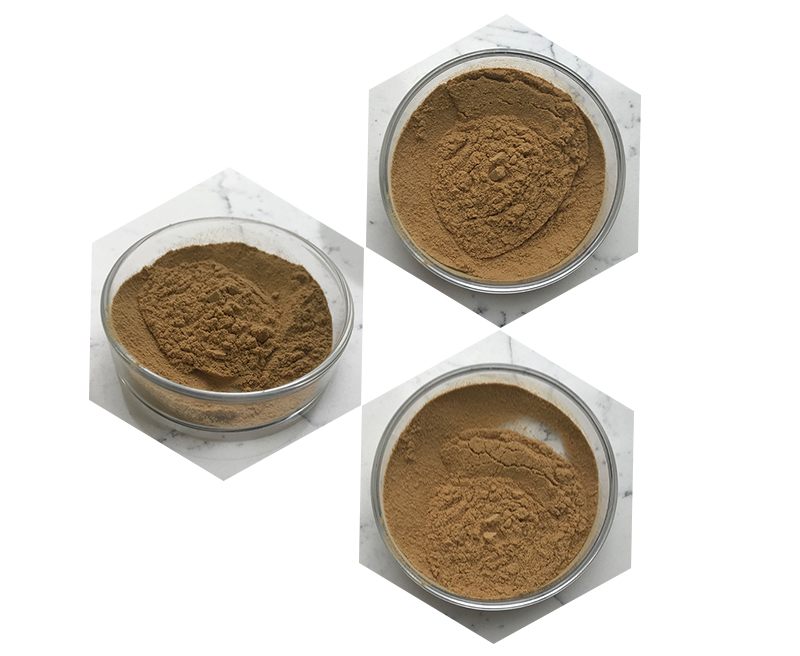Phyllanthus emblica extract, commonly known as Indian gooseberry or Amla, is a plant of significant medicinal value in traditional Ayurvedic medicine. Its extract, derived from the fruit, is rich in vitamin C and various polyphenols, making it a potent natural remedy with numerous health benefits. Comprehensive research on Phyllanthus emblica extract spans various domains, including its phytochemical composition, pharmacological effects, and therapeutic applications. Here’s an overview:
Phytochemical Composition
1.Vitamin C: Amla is one of the richest natural sources of vitamin C, providing antioxidant benefits.
2.Polyphenols: These include gallic acid, ellagic acid, and emblicanin A and B, which contribute to the fruit’s potent antioxidant properties.
3.Tannins: Such as emblicanin, which enhance the stability and efficacy of vitamin C in the body.
4.Flavonoids: Including quercetin and kaempferol, which provide additional antioxidant and anti-inflammatory effects.

Pharmacological Effects
1.Antioxidant: The high vitamin C and polyphenol content make Phyllanthus emblica extract a powerful antioxidant, helping to neutralize free radicals and reduce oxidative stress.
2.Anti-inflammatory: It helps in reducing inflammation by inhibiting the production of pro-inflammatory cytokines.
3.Antimicrobial: The extract shows activity against various bacterial and fungal strains, making it beneficial for treating infections.
4.Hepatoprotective: Protects the liver from toxins and oxidative damage.
5.Anticancer: Some studies suggest it may inhibit the growth of cancer cells and induce apoptosis in certain types of cancer.
6.Antidiabetic: Helps in lowering blood glucose levels and improving lipid profiles, making it beneficial for managing diabetes.
7.Cardioprotective: Its antioxidant and anti-inflammatory properties contribute to heart health by reducing lipid peroxidation and improving endothelial function.
Therapeutic Applications
1.Skin Health: Due to its antioxidant properties, it is used in skincare to prevent aging, improve skin tone, and treat conditions like acne.
2.Hair Care: Commonly used in hair oils and shampoos to strengthen hair, prevent dandruff, and promote growth.
3.Digestive Health: Amla extract is used to improve digestion, relieve constipation, and treat gastritis.
4.Immune Support: Enhances immune function due to its high vitamin C content and overall nutrient profile.
5.Respiratory Health: Used to treat respiratory infections and improve overall respiratory function.
6.Anti-aging: Its high antioxidant content helps in reducing signs of aging by combating oxidative stress.
Research Studies and Findings
1.Clinical Trials: Various clinical trials have shown the efficacy of Phyllanthus emblica extract in improving lipid profiles, reducing blood glucose levels, and enhancing overall health.
2.Animal Studies: Animal studies have demonstrated its potential in reducing the risk of chronic diseases like diabetes, heart disease, and cancer.
3.In Vitro Studies: Laboratory studies highlight its antimicrobial, anticancer, and anti-inflammatory activities at the cellular level.

Safety and Dosage
1.Safety Profile: Generally considered safe for most people when consumed in typical dietary amounts. However, excessive intake might cause gastrointestinal discomfort in some individuals.
2.Dosage: Dosage varies depending on the form (capsules, powder, juice) and the intended use. Commonly recommended doses range from 500 mg to 1,000 mg per day for general health benefits.
Conclusion
Phyllanthus emblica extract is a versatile natural remedy with a wide range of health benefits supported by traditional use and modern scientific research. Its rich phytochemical profile underlies its antioxidant, anti-inflammatory, antimicrobial, and various other pharmacological effects, making it a valuable addition to both traditional and modern medicine. Continued research is likely to uncover more therapeutic potentials and applications for this remarkable plant extract.
